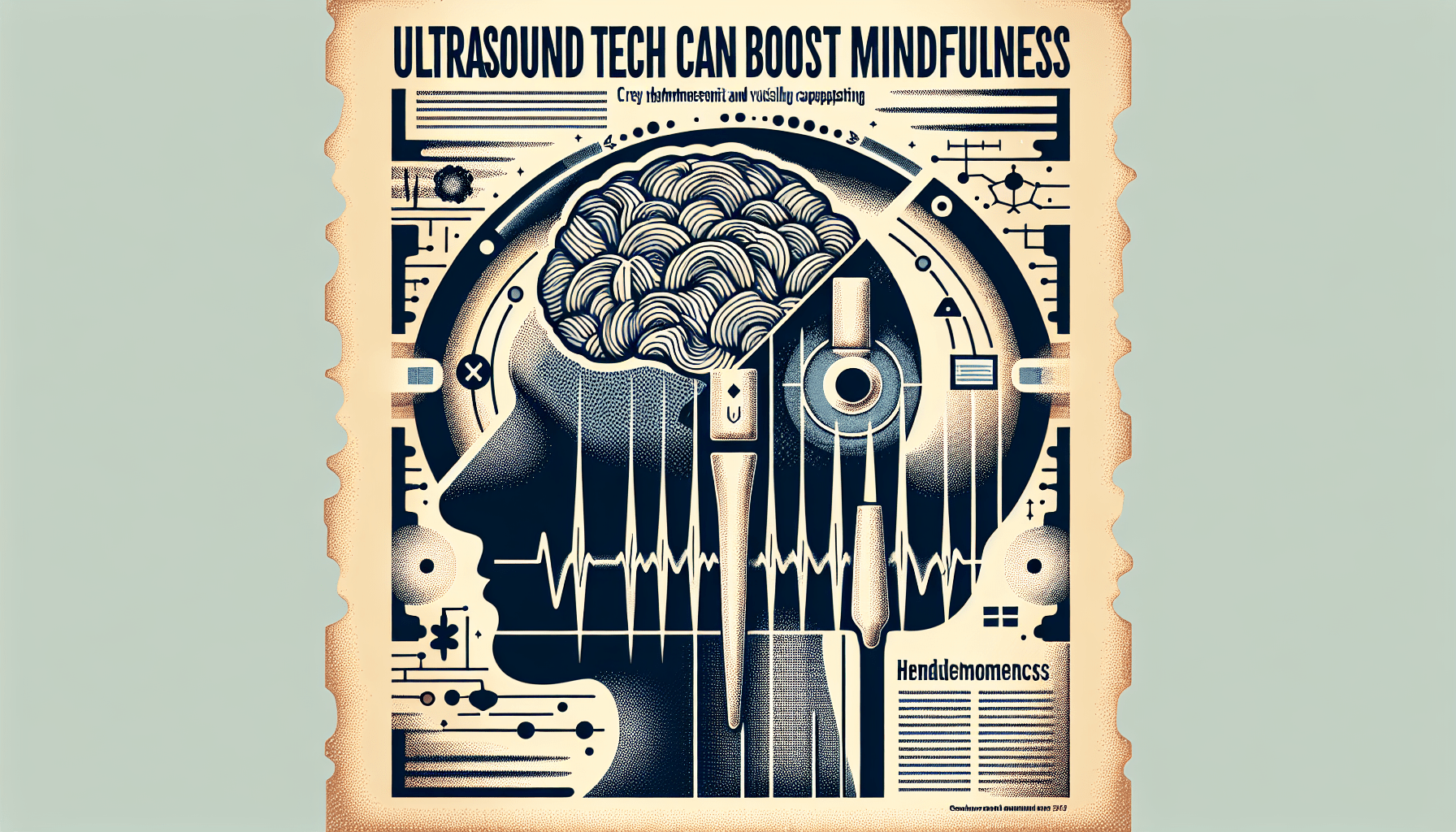As you embark on your journey through mindfulness meditation, it’s natural to seek out its many proclaimed benefits for mental clarity and well-being. Yet, it is equally important to recognize that this practice is not universally beneficial and can have unintended side effects. In “Navigating the Challenges of Mindfulness Meditation,” you are invited to look deeper into the potential drawbacks, such as increased anxiety, sleep disturbances, and signs of dissociation. Neuroscientist Willoughby Britton, PhD, from Brown University, along with other experts, shares essential insights on what to watch for during your practice. By staying informed, you can more effectively navigate both the rewarding and challenging aspects of mindfulness, ensuring that your journey toward mental peace is harmonious and balanced. Have you ever wondered if there is more to mindfulness meditation than the peace and serenity it promises?
Navigating the Challenges of Mindfulness Meditation
Mindfulness meditation has garnered widespread acclaim as a transformative practice that enhances mental clarity, reduces stress, and boosts overall well-being. If you’ve ever listened to self-help gurus or read up on wellness blogs, you’ve likely heard about the immense benefits of mindfulness meditation. The practice often involves sitting quietly, focusing on your breath, and becoming more aware of the present moment. However, while the positive aspects are widely discussed, few talk about the challenges and potential drawbacks. This article aims to expose the less-discussed side of mindfulness meditation and guide you through navigating these challenges.

Understanding Mindfulness Meditation
Before delving into the potential drawbacks, it’s crucial to understand what mindfulness meditation is. Essentially, mindfulness involves being fully present and engaged with whatever you’re doing at the moment, free from distraction or judgment. This can include noticing the intricacies of your breath, the rustling of leaves, or even the sensations in your body.
The Promised Benefits
Many people take up mindfulness meditation because of its reputed benefits. These can include:
- Reduced Stress: Helping you manage anxiety and stress by cultivating a state of calm.
- Enhanced Focus: Improving concentration and mental clarity.
- Better Emotional Regulation: Assisting in managing emotional responses more effectively.
- Improved Physical Health: Lowering blood pressure and improving immune function.
Despite these benefits, mindfulness meditation is not a universally unblemished solution, and it doesn’t come without its own set of challenges.
Potential Negative Effects
As reported by various experts, including neuroscientist Willoughby Britton, PhD, from Brown University, the practice of mindfulness meditation can have some adverse effects. These are not always widely publicized, but they are essential to consider:
Lack of Motivation
Mindfulness meditation stresses detachment and non-attachment, which can sometimes lead to a decreased interest in daily activities or goals. This level of detachment might result in diminished motivation to pursue work, relationships, or personal ambitions.
Increased Anxiety
Meditation makes you confront your thoughts and emotions head-on. For some people, this can bring up past traumatic experiences or negative thoughts, leading to heightened anxiety, fear, and paranoia.
Signs of Dissociation
Dissociation involves feeling disconnected from yourself and your surroundings. While mindfulness aims to deepen self-awareness, this deeper understanding of the self can sometimes lead to a feeling of isolation and an altered sense of reality.
Sleep Disorders
Mindfulness increases your alertness, making you more aware of your surroundings. While this increased awareness can be exhilarating, it might also make it difficult to ignore even the faintest sounds, such as a ticking clock, which can disrupt sleep.
Physical Symptoms
According to reports from sources like The India Times, mindfulness meditation can sometimes cause physical discomforts, including headaches, gastrointestinal issues, and fatigue. These symptoms may occur due to the deep seated emotional and physical tensions that surface during meditation.
Detailed Breakdown of Negative Effects
Now, let’s go into more detail about each of these potential negative effects and how you can navigate them.
Lack of Motivation: A Closer Look
Description: Mindfulness meditation encourages non-attachment, which can sometimes translate into a perceived lack of motivation. When you practice detachment deeply, you may find it hard to invest emotionally in various life activities, including work, personal projects, and relationships.
Navigating This Challenge:
- Set Intentions: Instead of entirely detaching, set clear intentions for why you’re practicing mindfulness. This can strengthen your motivation.
- Balance Mindfulness with Action: Integrate mindfulness with goal-oriented activities to maintain a sense of purpose.
- Professional Guidance: Sometimes, professional input can help you align your mindfulness practice with your life goals.
Increased Anxiety: A Closer Look
Description: Being alone with your thoughts can sometimes bring up buried trauma or anxieties. Without proper guidance, this can leave you feeling overwhelmed and anxious.
Navigating This Challenge:
- Seek Professional Help: Therapy can be a useful complement to mindfulness meditation for dealing with traumatic memories.
- Gradual Exposure: Instead of diving deep too quickly, take gradual steps to confront your thoughts.
- Structured Programs: Consider guided meditation programs that offer structure and professional support.
Signs of Dissociation: A Closer Look
Description: Mindfulness can change your perspective on your sense of self and reality. This deeper self-awareness can sometimes cause feelings of disconnection, both from oneself and the external world.
Navigating This Challenge:
- Grounding Techniques: Use grounding exercises to stay connected to the present moment. These can include physical activities like walking or touching textured objects.
- Social Connection: Maintain social interactions to balance solitary mindfulness practice.
- Limit Duration: Shorter, more frequent mindfulness sessions may help in avoiding dissociation.
Sleep Disorders: A Closer Look
Description: The heightened awareness from mindfulness meditation can sometimes make it difficult to ignore small noises, affecting sleep quality.
Navigating This Challenge:
- Routine Adjustment: Practice mindfulness at times that are distant from bedtime.
- Relaxation Techniques: Complement mindfulness with relaxation methods like reading or listening to soft music before sleep.
- Sound Environment: Use white noise machines to mask minor sounds that could disturb sleep.
Physical Symptoms: A Closer Look
Description: Physical symptoms such as headaches, gastrointestinal discomforts, and fatigue could be indicators that your body is responding to the new emotional experiences brought forth by mindfulness.
Navigating This Challenge:
- Shorter Sessions: Start with shorter meditation sessions to allow your body to gradually adjust to the practice.
- Physical Activity: Balance meditation with physical activities like yoga or stretching exercises to ease physical symptoms.
- Consult Healthcare Providers: If symptoms persist, consult healthcare professionals to ensure there are no underlying physical conditions.
Expert Recommendations
To optimize the benefits of mindfulness meditation and navigate its challenges, experts like Willoughby Britton, PhD, recommend integrating the practice with professional guidance and support frameworks.
Table 1: Expert Tips for Navigating Mindfulness Meditation Challenges
| Challenge | Expert Tip |
|---|---|
| Lack of Motivation | Set clear intentions, balance mindfulness with actions, seek professional guidance |
| Increased Anxiety | Employ therapy, take gradual steps, use structured programs |
| Signs of Dissociation | Use grounding techniques, maintain social connections, limit duration |
| Sleep Disorders | Adjust the routine, employ relaxation techniques, create a suitable sound environment |
| Physical Symptoms | Start with shorter sessions, balance with physical activities, consult healthcare providers |
Mindfulness Best Practices
To further help you navigate the challenges, here are some best practices to consider:
Gradual Implementation
Instead of diving headfirst into mindfulness meditation, gradually increase your practice. Starting with short sessions of 5-10 minutes can help your body and mind adjust to the new routine.
Integrate Supportive Practices
Complement mindfulness meditation with other supportive practices such as yoga, breathing exercises, or even short walks in nature. These can help balance the heightened awareness and reduce discomfort.
Community Support
Joining a mindfulness meditation group can provide a sense of community and support. Sharing experiences and challenges with others can make the journey less isolating.
Professional Guidance
Seeking guidance from a trained mindfulness coach or a mental health professional can make a significant difference. They can provide personalized advice, strategies, and support tailored to your individual needs.
Final Thoughts
Mindfulness meditation is a powerful tool with numerous benefits for mental and physical well-being. However, it is crucial to approach it with an understanding of its potential challenges and drawbacks. By being aware of these and employing strategies to navigate them, you can enhance your mindfulness practice and fully reap its benefits.
If you find any adverse effects from mindfulness meditation, remember that it’s okay to seek professional help. Sometimes, combining mindfulness with other therapeutic practices can provide a more balanced approach to mental wellness. While the journey of mindfulness is uniquely personal, you are not alone in navigating its challenges.






